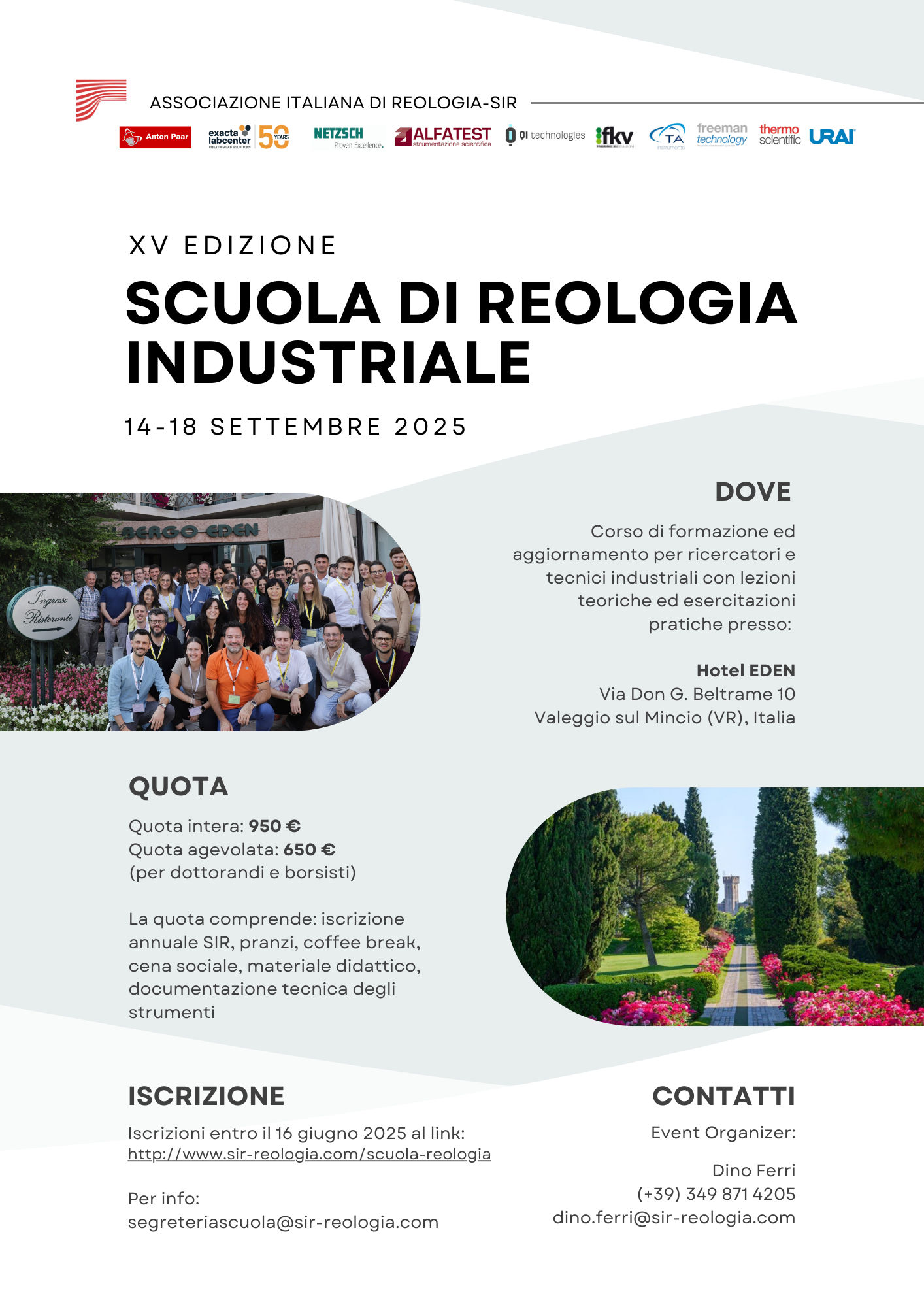|
Tweet |
|
A rheological study of hydrates formation and plugging
 Autori: P. D'Antona, A. Arcelloni, S. D'Angelo, A. Guarnieri, R. Maglione
Autori: P. D'Antona, A. Arcelloni, S. D'Angelo, A. Guarnieri, R. MaglionePresentato al: Southern Europe Conference on Rheology
Anno: 1999
Volume: 2 - Issue: Unico
Casa Editrice: SIR-Cuen Napoli
Lingua: English
Abstract
The hydrates are a naturally occurring solid composed of gas and water. Hydrates tend to form in water base fluids at higher pressures and lower temperatures. With the right combination of gas entrained in the drilling fluid, hydrates can form as a fluid cools while circulating up the wellbore, forming an ice-like substance. Hydrate can plug tubing (choke and kill lines, BOPs and riser), interfering with well control procedures. The aim of this work was to investigate the rheological behaviour of a typical WBM (Water Base Mud) drilling fluid under conditions suitable (in term of pressure, temperature and gas composition) for the formation of hydrates. From the experimental data it was possible to evaluate both the on-set of hydrate formation and the performance of additives for the prevention of hydrate formation.
Warning: Undefined array key "REOLOGIALOGIN" in D:\inetpub\webs\sir-reologiacom\articoli_scheda_2025.php on line 132
Attenzione la lettura completa dell'Abstract e il download dei file è riservata esclusivamente ai Soci dell'Associazione Italiana di Reologia.
Se sei un Socio ti preghiamo di effettuare il login se non lo hai già fatto
Nel caso non fossi un Socio dell'Associazione Italiana di Reologia ti preghiamo di visitare la sezione "Iscriviti all'Associazione" per procedere alla registrazione
XVIII Italian Society of Rheology Conference
Capri Island, Naples, Italy 12-14 septemper 2024

The XVIII edition of the SIR conference will be held in Villa Rosa, a recently renovated ancient Neapolitan villa in Capri Island (Naples, Italy), in September 12th-14th 2024. The event will be organised with the support of the Department of Chemical, Materials and Industrial Production Engineering of the University of Naples Federico II.
All those with an interest in rheology, in all its aspects, are invited to submit contributions.
Selected papers will be eligible for a special issue in Rheologica Acta.
ULTIMI ABSTRACT
Sezione in Aggiornamento
LINKS UTILI
Come diventare SOCI
L'Associazione Italiana di Reologia ha come scopo la promozione e lo sviluppo delle attività nel campo della reologia in relazione ai suoi aspetti teorici, sperimentali, didattici, applicativi e industriali.
L'organizzazione di incontri periodici e di un congresso Nazionale annuale permette lo sviluppo di contatti e incontri
Associazione Italiana di Reologia - SIR (Versione Italiano)
|
Italian Society of Rheology - SIR (English Version)
Storia | Statuto | Organigramma | Regolamenti | Iscriviti all'Associazione | Prossimi Eventi | Convegni e Congressi Internazionali
Convegni e Congressi Nazionali | Scuole di Reologia | Workshop | Links | TOP Links | Società e Associazioni di Reologia
Pubblicazioni sulla Reologia | Centri di Ricerca | Aziende | Altri Links | Segnala Links
Abstract ed Atti di Convegni | Bollettino Panta Rei | Contattaci | GDPR Privacy Policy 2018


© 1997-2025 Associazione Italiana di Reologia
Sede Legale: Via Alicorno 4, 35123 Padova - Italia (Italy)
Powered by Web Agency Cosenza
Storia | Statuto | Organigramma | Regolamenti | Iscriviti all'Associazione | Prossimi Eventi | Convegni e Congressi Internazionali
Convegni e Congressi Nazionali | Scuole di Reologia | Workshop | Links | TOP Links | Società e Associazioni di Reologia
Pubblicazioni sulla Reologia | Centri di Ricerca | Aziende | Altri Links | Segnala Links
Abstract ed Atti di Convegni | Bollettino Panta Rei | Contattaci | GDPR Privacy Policy 2018


© 1997-2025 Associazione Italiana di Reologia
Sede Legale: Via Alicorno 4, 35123 Padova - Italia (Italy)
Powered by Web Agency Cosenza

